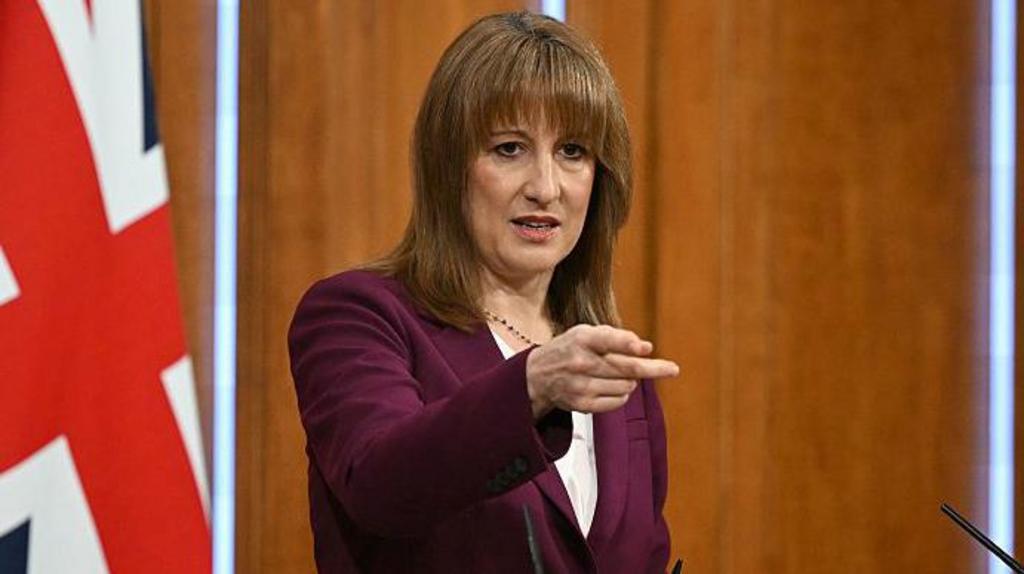The Chancellor’s pre-Budget message outlines a plan for fiscal tightening, attributing the need for potentially difficult measures to prior economic conditions. The aim, she argues, is to reduce debt, bolster public services, and stimulate economic growth.
But how will this balance be achieved?
Rachel Reeves has placed responsibility for prospective tax increases on the decisions of previous administrations, citing post-Brexit trade arrangements and austerity policies as contributing factors to the official forecasters’ subdued assessment of the UK’s productivity.
Years of underinvestment have hampered productivity, resulting in slow improvements. This lower productivity translates to weaker economic growth, impacting tax revenues and constraining the Chancellor’s ability to meet fiscal targets.
Reeves has also referenced external pressures, such as tariffs and supply chain disruptions, as contributing to the less-than-stellar growth and inflation figures.
However, some of these challenges were foreseeable. While the official forecast may be more pessimistic than anticipated, productivity – the measure of economic output per hour worked – has been a long-standing concern.
Furthermore, the impact of external factors, such as former President Trump’s trade policies, is projected to have a limited effect on UK growth.
Economists estimate that the Chancellor may need to implement tax increases totaling approximately £30 billion to comfortably meet her fiscal rules.
While Reeves has criticized past Conservative governments for prioritizing political expediency, her own fiscal position is also influenced by decisions made by the current government.
The Treasury is allocating significant funds to cover policy reversals related to welfare and Winter Fuel Payments.
Analysts, including those at the Bank of England, suggest that the Chancellor’s tax increases in the previous Budget have contributed to hindering growth and employment, while also adding to inflationary pressures this year.
It was always a gamble for Reeves to suggest that further substantial tax increases would be unnecessary. She narrowly met her fiscal rules last year, and that gamble has not paid off. However, the situation cannot be solely attributed to external factors.
Tax increases now appear likely, and potentially significant. The Chancellor maintains that the funds are necessary to support increased investment in public services, but the effectiveness of these services depends on more than just financial resources.
Official data indicates that public sector efficiency, particularly in healthcare, declined after Labour came to power, with productivity decreasing. Further efforts are needed to ensure value for money.
Specific details regarding tax increases will be revealed in the Budget.
By avoiding direct answers about adhering to manifesto pledges, while simultaneously portraying a challenging economic inheritance, the Chancellor has fueled speculation about potential income tax increases.
Pledges not to raise the main rates of VAT, employee National Insurance Contributions, and income tax always appeared risky to economists, given that these “big three” taxes constitute the majority of tax revenue. Their prominence in the manifesto, however, made them appear inviolable, to be breached only in emergencies.
An increase in income tax rates may materialize, perhaps accompanied by a reduction in National Insurance to mitigate the impact on workers. But this remains uncertain.
The Budget is still under development. The possibility of breaking manifesto pledges may have been deliberately raised, so that if it does not happen, an alternative package of tax rises, however large, might be met with some relief.
Numerous other options are under consideration, including a levy on banks or the gambling industry, further freezes on income tax thresholds (fiscal drag), changes to National Insurance liability for partnerships, and adjustments to the tax treatment of pension levies.
These tax increases will likely be substantial and primarily affect higher earners.
Raising taxes by £20-£30 billion, effectively withdrawing that amount from the economy, will inevitably impact incomes and profits, potentially hindering economic growth.
Regardless of the size of the tax bill, this Budget may not fully achieve the Chancellor’s objectives.
The Bank of England’s interest rate decision was finely balanced, placing increased scrutiny on the December meeting.
UK inflation has decreased from record levels but is still higher than the Bank of England’s 2% target.
The Bank of England’s interest rate influences mortgage, loan, and savings rates for millions.
ABF explores separating the Primark chain from food brands as British consumers reduce their spending on fashion.
Nearly a third of properties listed on a home-sharing website lacked a living room.

